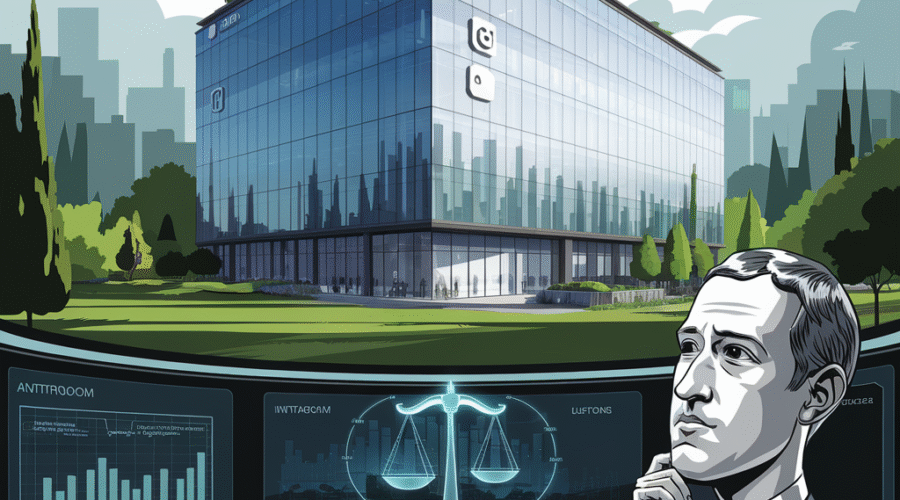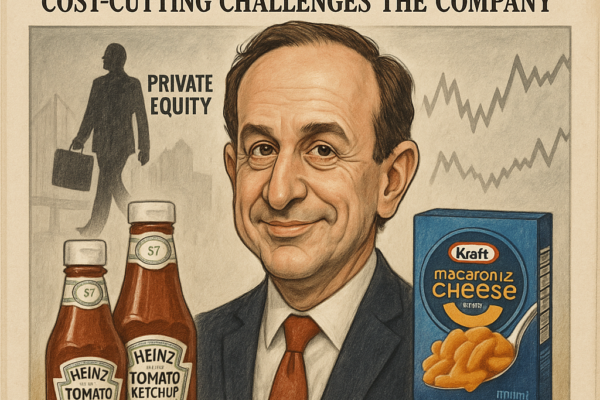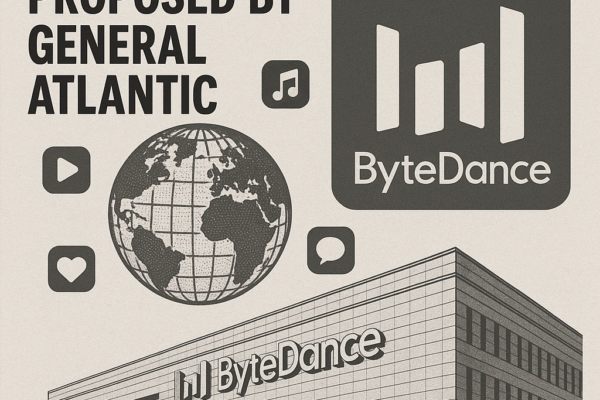As Meta CEO Mark Zuckerberg completes his second day of testimony in the Federal Trade Commission’s landmark antitrust trial, newly revealed internal documents paint a startling picture of corporate foresight and regulatory vulnerability. The FTC’s case seeking to unwind Meta’s acquisitions of Instagram and WhatsApp hinges on proving these deals were anti-competitive moves rather than legitimate growth strategies – a argument bolstered by Zuckerberg’s own 2018 memo considering spinning off Instagram amid mounting antitrust concerns[1][2][3]. This trial represents not just a existential threat to Meta’s $1.3 trillion empire, but a watershed moment for how regulators approach tech consolidation in the age of platform dominance.
The Acquisition Playbook That Built a Social Media Empire
Instagram’s $1 Billion Gambit
When Facebook acquired Instagram in 2012, the photo-sharing app had just 13 employees and zero revenue. Zuckerberg’s testimony revealed the strategic calculus behind the deal: “We were doing a build vs. buy analysis. Instagram had a better camera, better filters, and better product-market fit than what we were developing internally”[7][8]. Internal emails from 2012 show Zuckerberg describing Instagram as a “rapidly growing, threatening network” that could become “very disruptive to us”[5], language the FTC argues proves anti-competitive intent.
WhatsApp’s $19 Billion Moonshot
The 2014 WhatsApp acquisition followed similar logic, with Meta seeking dominance in mobile messaging as users shifted from desktop. Zuckerberg testified that WhatsApp’s end-to-end encryption and global user base complemented Facebook’s vision of “connecting the world”[6][8]. However, FTC lawyers presented evidence suggesting these purchases were part of a systematic “buy or bury” strategy to neutralize potential rivals before they could challenge Facebook’s core social network[2][5].
Internal Conflicts and the Spin-Off Calculus
The 2018 Memo That Changed Everything
Six years after the Instagram deal, Zuckerberg circulated a confidential memo contemplating spinning off the app. “There’s a non-trivial chance we’ll be forced to spin out Instagram and WhatsApp in 5-10 years,” he wrote, citing growing political pressure to break up Big Tech[1][3][6]. The document reveals remarkable prescience about today’s regulatory environment, with Zuckerberg anticipating that “the next Democratic president” might push for divestitures[6].
Synergy Realities vs. Strategic Tax
Zuckerberg’s memo contained a startling admission about merger math: “Corporate history shows most companies perform better after split-ups. Synergies are usually less than people think”[3][6]. This challenges conventional M&A wisdom, suggesting Meta’s leadership privately doubted the very integration arguments used to justify acquisitions. The “strategy tax” of coordinating Facebook and Instagram teams emerged as a recurring pain point, with Zuckerberg noting operational inefficiencies and leadership clashes[3][4].
The FTC’s Legal Onslaught
Redefining Market Boundaries
The FTC’s case rests on narrowly defining the relevant market as “personal social networking services,” excluding TikTok, YouTube, and messaging apps[2][5][8]. This allows prosecutors to claim Meta holds 80%+ market share in a space where Instagram and WhatsApp would otherwise compete. Zuckerberg countered that “the market is fluid and competitive,” citing ByteDance’s $120 billion in 2024 revenue from TikTok as proof of viable alternatives[2][7].
The “Buy or Bury” Paper Trail
Prosecutors presented damning internal communications, including a 2012 email where Zuckerberg tells his CFO that acquiring Instagram would help “neutralize a competitor”[7]. Another 2018 document shows Meta reduced cross-promotion between Facebook and Instagram to avoid “network collapse” of its flagship app[3]. FTC lead attorney Daniel Matheson argued these reveal a pattern of anti-competitive behavior spanning 13 years[5][7].
Meta’s Defense: Innovation Through Acquisition
The Build vs. Buy Imperative
Zuckerberg maintained that acquisitions accelerate innovation, testifying that “building successful apps is incredibly hard.” He noted Meta’s failed attempts to create Instagram competitors like Camera and Poke, stating “we tried dozens of apps that never gained traction”[2][6][8]. This builds Meta’s core argument: Without acquiring Instagram and WhatsApp, these services might never have reached their current scale and sophistication.
The Platform Ecosystem Advantage
Meta’s lawyers emphasized the interdependency of its apps, arguing that shared infrastructure (like ad systems and AI recommendations) creates user benefits impossible through separate companies[3][6]. They presented data showing Instagram’s daily active users grew from 30 million to 1.4 billion under Meta’s ownership, with 98% of revenue reinvested into product development[3][8].
Industry Implications: A New Era of Tech Regulation
The Precedent Paradox
This trial confronts a fundamental tension in tech regulation: Can companies be punished retroactively for deals regulators originally approved? The FTC cleared both acquisitions with minimal scrutiny – Instagram in 2012 with a 5-0 vote, WhatsApp in 2014 after a 3-2 decision[3][6]. If successful, the case could empower regulators to revisit decades-old transactions, creating uncertainty for every major tech merger.
The Global Domino Effect
With the European Union’s Digital Markets Act already forcing Meta to offer Instagram and Facebook as separate services in Europe, a U.S. breakup could trigger worldwide unbundling. Analysts estimate Instagram alone contributes $45 billion annually to Meta’s ad revenue – 40% of its total[7][8]. Losing control of WhatsApp’s 2.8 billion users would further complicate Meta’s metaverse ambitions and emerging AI strategies.
Leadership Crossroads: Zuckerberg’s Next Move
Contingency Planning Revealed
The 2018 memo shows Meta’s leadership seriously considered worst-case scenarios, including complete separation from Instagram. Zuckerberg proposed creating “firewalls” between app teams to preserve operational independence, a structure resembling Alphabet’s relationship with Google and YouTube[3][6]. This suggests Meta may have contingency plans for a forced breakup, though Zuckerberg testified that current integration makes separation “extremely damaging”[6][8].
The Succession Wildcard
With Instagram CEO Adam Mosseri emerging as a potential successor to Zuckerberg, trial outcomes could reshape Meta’s leadership pipeline. Analysts speculate a spun-off Instagram might poach key AI and ad tech talent from Facebook, creating internal competition[4][8]. Meanwhile, WhatsApp’s encryption-focused team could drift further from Meta’s data-driven business model if made independent.
Conclusion: The Unraveling of Big Tech’s Growth Playbook
As the trial enters its critical phase, the revelations underscore a fundamental shift in how regulators view tech mergers. What was once celebrated as savvy deal-making now faces scrutiny as potential market manipulation. For CEOs, the case offers crucial lessons: Document internal deliberations cautiously, as decade-old emails may resurface in court. Consider not just the strategic value of acquisitions, but their regulatory half-life in an era of renewed antitrust fervor. Most importantly, build contingency plans for the unthinkable – because as Zuckerberg’s 2018 memo proves, even the mightiest tech empires must eventually confront their monopoly paradox.
Sources
https://tribune.com.pk/story/2540211/zuckerberg-considered-spinning-off-instagram-amid-antitrust-fears-memo-reveals, https://www.arise.tv/meta-ceo-zuckerberg-considered-spinning-off-instagram-due-to-antitrust-fears-trial-documents-reveal/, https://www.moneycontrol.com/world/zuckerberg-s-emails-raise-breakup-fears-as-meta-faces-antitrust-heat-article-12995596.html, https://www.storyboard18.com/digital/mark-zuckerberg-once-thought-about-making-instagram-a-separate-company-62390.htm, https://www.washingtontimes.com/news/2025/apr/16/email-evidence-shows-zuckerberg-feared-instagram-could-disruptive/, https://www.canberratimes.com.au/story/8943857/zuckerberg-eyed-instagram-spin-off-over-antitrust-risk/, https://www.wunc.org/2025-04-15/mark-zuckerberg-defends-meta-in-court-against-monopoly-claims, https://www.pymnts.com/cpi-posts/zuckerberg-weighed-spinning-off-instagram-amid-antitrust-concerns-trial-reveals/





